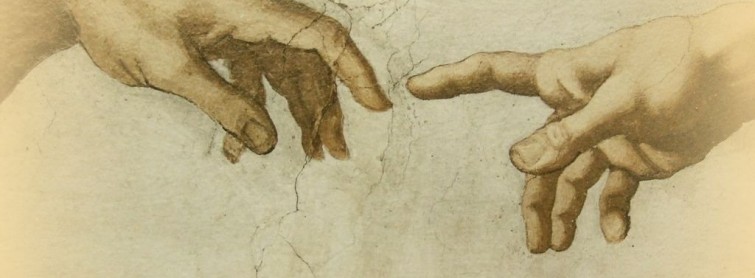Though there is some diversity in what is believed among creationists, there are a few matters which are common to creationist beliefs. Here are four of the eight most common beliefs held by those who subscribe to Creation…
- That The Earth Was Created in Six Literal Days
Genesis 1 describes God’s creation of the world in six literal, 24-hour days. Each day is framed by the indication of the ‘evening’ and ‘morning’ as well as a day number such as ‘fourth day.
A belief in six literal days counters popular scientific claims that the earth was created over millions of years. The original authors of Genesis were not scientists, but rather were writers who wanted to convey an understandable message to their audience. Their language needed to be clear to the common Hebrew person, including their children, so as to get their theological message across. For this reason creationists also reject the idea that the days described in Genesis are to be taken as metaphorical days, or that each day actually represents a longer period of time (such as several million years).
Genesis 1 makes it clear that each day had an evening, a morning and a number – just like the days that we experience. Each day was also given time indicators such as the creation of the sun and moon – this way humanity had a way of measuring days, weeks, months and years. Further to these indicators, is the command given in Exodus 20:8-11 to work six days and rest on the seventh. This commandment was modelled off God’s creative activity over a week. We have no reason to doubt that the account of creation over six literal days is the literal truth, therefore, we must take the word at its face value.
- That Radiometric Dating is Unreliable
Radiometric dating is believed by scientists to prove that rocks are millions of years old, but in order to believe this, one has to make strong assumptions about the content of the original rocks and the rate at which that content decays. Because there are no scientists that have been around for millions of years to watch and record the rate of radioactive decay, science assumes that the rate has always been the same as it is now, and base their findings based on this assumption.
The Bible makes it clear through accurately recorded genealogies that the age of the earth is only a few thousand years, thus promoting the theory of a young earth and universe.
God’s omnipotence transcends our human understanding of time so we must trust his word about how old the universe really is.
- That a Variety of Kinds Were Created
Genesis 1 tells us that God created separately according to various kinds. We can still see this variety in the world around us.
The account in Genesis tells us that God created every living thing on days three, five and six of the Creation Week. Ten times throughout Genesis 1 we are told that God created according to its ‘kind’. This word is again used in relation to Noah’s Ark.
What does this all mean? It means that despite theories of animals evolving from single-cell organisms, animals are actually all varieties of their own kind. For example, there is a large amount of variety within the existence of dogs in the world. Different breeds of dogs are able to breed and thus create hybrid offspring, but they are still dogs. Dogs and cats are not able to interbreed simply because, God instated several kinds.
For example, donkeys and horses are all from the Equidae family. They can interbreed to produce mules, but they cannot breed with birds – they can only procreate according to their own kind. God placed the potential for variety within the created order, but it was, and continues to be done within the framework of the created kinds. Though God has allowed for variety, every species still belongs, inherently, to its own kind. Dogs are still dogs.
- That Man Was a Unique Creation
Genesis 1 tells us that God created humanity in his own image. Men and women do not descend from apes, dolphins or any other mammal. Though we may share some anatomical similarities, we know from scripture that human beings are distinct, and created in the image of God. Claiming the theory of evolution means placing humanity as a consequence of evolution rather than the goal – an idea which stands in sharp contrast to the picture we get in Genesis.
Apart from obvious evidence that humans and apes are distinctly distinguishable, Bible-believing Christians also recognise the other distinctions that the human world has from the animal world – including our ability to be in relationship with our God, to pray, to read his word and to engage in his presence in a very real way.
Be sure to look out for part two of this article, where we look at the last four beliefs that are commonly held among creationists!
To honour God’s creation, be sure to sign the petition to establish Creation Day as an official holiday!
- 4 Reasons to Believe in Creation - October 7, 2015
- How Many Of Each Animal Was On The Ark? - October 3, 2015
- Living A Christian Life In A Culture of Consumption - October 3, 2015

